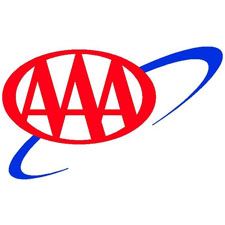
Friday’s price continued to set a record for the highest price on the calendar day, a streak of daily record prices that began on August 20. Despite the pricier start, AAA expects national gas prices in 2013 to average less than they did in 2012. Gas prices ended 2012 with an annual average of $3.60 per gallon – the highest on record and nine cents more expensive than the previous high of $3.51 in 2011.
In a shortened trading week due to the New Year’s Day holiday, crude oil saw gains early in the week, reaching 11-week highs on concerns over the U.S. budget issues and the so-called “fiscal cliff.” However, following a last-minute deal to avert the fiscal cliff on Wednesday, crude oil slipped Thursday, easing early week gains. Crude oil’s retreat was due in part to a strengthened U.S. dollar, improved U.S. jobs data and continued global demand concerns. By Friday, demand concerns were offset by U.S. jobs data showing employers kept up the hiring pace in December, pushing crude oil higher to close the week at $93.09, up nearly 2.5 percent on the week. While oil prices have been rising, they remain more than $10 less expensive than the $102.96 settlement price to begin 2012. Crude oil peaked for 2012 at $109.77 per barrel on February 24.
In its weekly report, the U.S. Energy Information Administration (EIA) data confirmed a trend cited late in 2012 toward lower crude oil stocks. Crude stocks dropped 11.1-million barrels to just under 360-million barrels, but most observers believe the fall reflected typical year-end inventory avoidance thanks to tax consequences. Gasoline stocks rose by 2.57-million barrels 225.7-million barrels and gasoline demand remained quite dismal for a holiday period, dropping 90,000 barrels per day (bpd) to just 8.518-million bpd. All things considered, this is a holiday report, and subsequent reports will confirm whether demand trends are as poor as recent data might indicate.
“Record high gas prices made 2012 the most expensive year yet for motorists,” said Martha M. Meade, Manager of Public and Government Affairs for AAA Mid-Atlantic. “Factors as volatile as major hurricanes, refinery outages and tension in the Middle East resulted in significant frustration for people filling up their cars. However, despite recent tensions surrounding ‘fiscal cliff’ negotiations, AAA believes it is unlikely any short-term gas price increases would match those seen this time last year.”
While the resolution to the “fiscal cliff” negotiations in Washington could pressure gasoline prices higher to begin 2013, it is unlikely that this increase would be on par with a year ago. Continued national and international economic concerns, weak demand and increased domestic crude oil production are likely to temper any seasonal price increase in the coming months.










